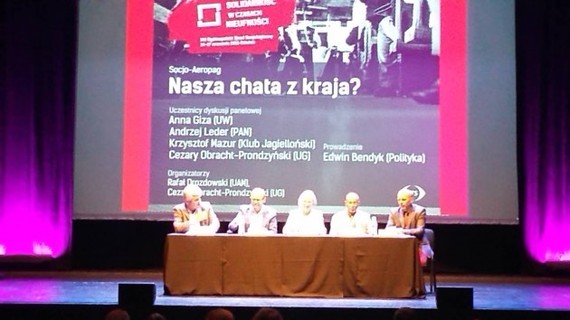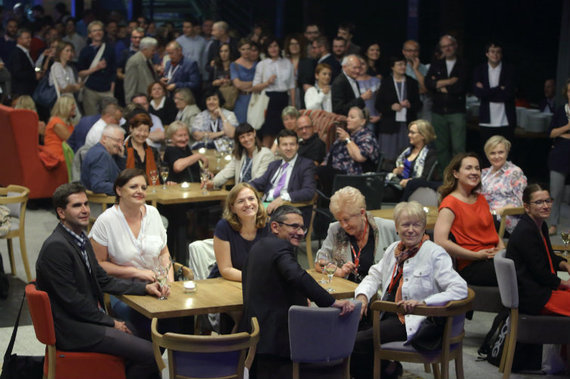"Solidarity in times of distrust" was the main theme of the 16th Polish Sociological Congress, which took place in Gdansk last week. It was great "food for thought" on the condition of not only Polish society, but also the whole European Union and globalized world. Social divisions, populism, lack of serious debate, and fears instead of knowledge are challenges we are facing today in almost every corner of the world.
The results of the survey presented during the congress are really worrisome. 80% of Poles consider our society fractured, divided. The survey found out that many people are not afraid of diminishing civil liberties. This is a dangerous process we can, unfortunately, see currently in Poland, where the constitutional court is stripped of its prerogatives and authority by Peace & Justice ruling party. Such a result is an important warning for every responsible politician, interested in the development of the country, its people and civil liberties, instead of power for power's sake.
Fractured societyWe should seek a better way of reaching citizens, engaging them and explaining why democracy is crucial for our well-being. And it is not an easy task. During "The fractured society" plenary session, researchers discussed social communication becoming too binary. In the time of real-time communication on Twitter and Facebook there is no place for sincere discussing complex issues. A message has to be extremely short and controversial to draw attention. As one of participants noticed, pro-authoritarian politicians tend to get much more followers in social media than pro-democratic ones, because their message is binary: this is good and that is bad.
On the other hand, the democratic side is also not without its faults. Too often supporters of the civil society tend to communicate in too exclusive way. They are not able to explain their values to wider audience; sometimes they may sound like excluding social groups on the other side of political spectrum - these less educated or afraid of globalization. Definitely there is much work to be done.
The last plenary session, "Not in my backyard", attracted so many guests they filled the whole audience in the Gdansk Shakespeare Theater. Participants tried to compare Polish and European experiences. We heard what Poles don't like to hear: that our experience is not so unique. Social divisions, populism and a fear of Stranger are common trends throughout Europe. The reaction to the rapidly changing world is also typical. People tend to escape into familiar, safe places, like the above mentioned backyard. We don't want to go outside but we also don't want others to enter our safe zone. This is a reason for vivid anti-globalism or anti-refugees movements in the world.
There was one very important remark from Anna Giza of Warsaw University : we, as a society, miss "public sphere rituals". We don't know how to debate, we don't know how to engage or oppose aggression in social life, so we choose to be silent and indifferent. How dangerous it is we see every day on TV, on the internet and on the streets.
The conclusion after the congress is that we need a new model of cooperation and public debate in the times of growing social tensions and rapid development of communication technologies. We, in Gdansk and the Pomeranian region, are deeply aware how important it is. I believe our experience of a city where people of very different heritages live together definitely can help.


